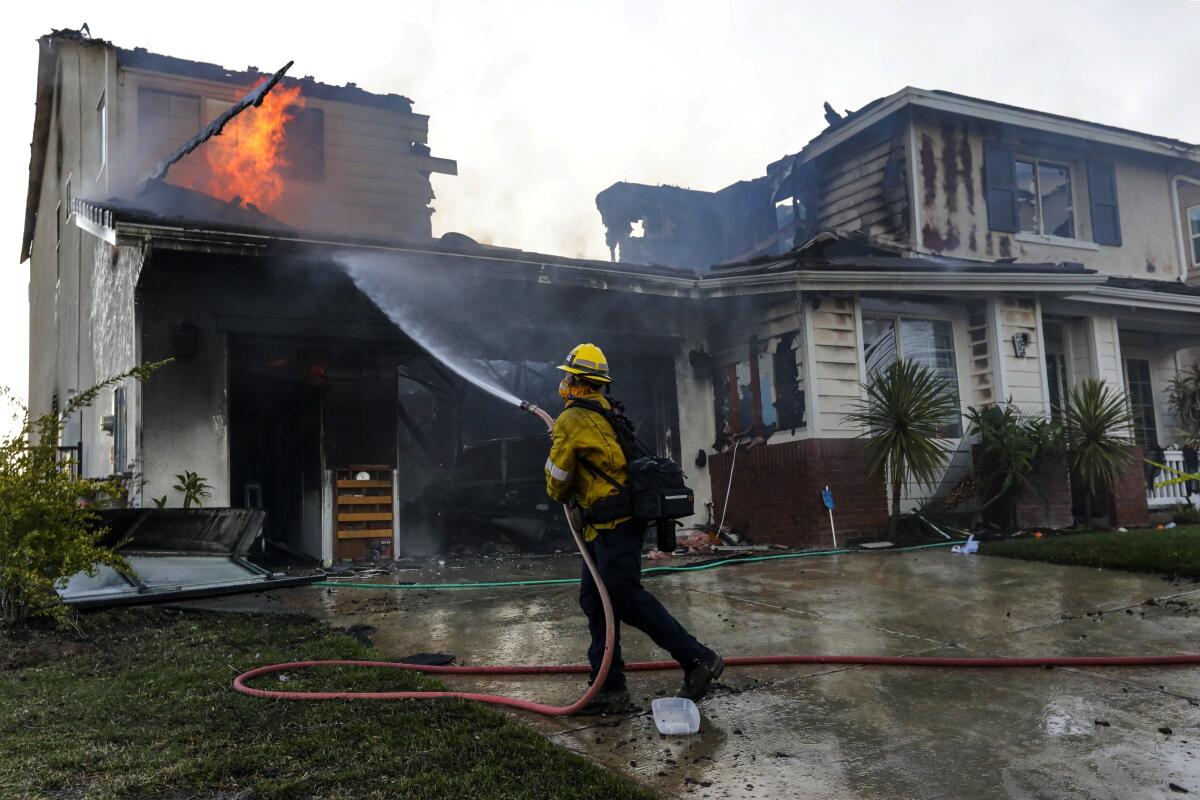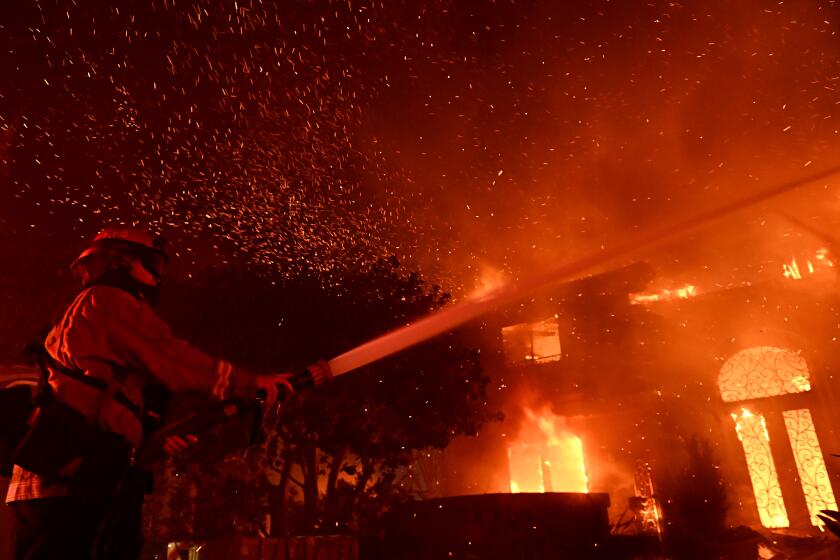It’s not just State Farm. Allstate no longer sells new home insurance policies in California

- Share via
Californians looking to buy a house face some of the country’s most expensive real estate prices and wildfires that threaten scores of housing tracts. Now there’s another obstacle: finding an insurer willing to cover their dream home.
State Farm General Insurance Co. said last week that it’s no longer accepting new applications for property and casualty coverage in California because of soaring wildfire and construction costs and “a challenging reinsurance market.”
Now, Allstate Corp. has told the state Department of Insurance that it stopped selling new home insurance policies last year. The notice was part of a recent request for a nearly 40% rate increase for home and business property and casualty insurance.
The move by the two insurers — State Farm was California’s largest property insurer and Allstate was fourth as of 2021 — could worsen what the FAIR Plan, a state-mandated insurance pool, has called an “impending insurance unavailability crisis.”
“We have a lot of people going naked, which means they have no insurance,” said Bill Dodd, a Democratic state senator representing fire-scarred Napa County and other parts of Northern California. “What my constituents want is insurance.”
The company blames ‘increases in construction costs outpacing inflation, rapidly growing catastrophe exposure and a challenging reinsurance market.’
The FAIR Plan, which offers minimal coverage at high rates, is meant to be a provider of last resort, but enrollments have surged 70% since 2019 to 272,846 homes in 2022.
A series of catastrophic wildfires in recent years has increased calls from insurers to weaken the state’s consumer-friendly policies that have held down rates for decades.
The average California homeowner’s annual insurance premium is $1,300, compared with more than $2,000 in other states with wildfire risk and $4,000 in hurricane-prone Florida, according to the Insurance Information Institute.
But new home buyers could be forced to pay more, regardless of their home’s proximity to wildfire dangers. Before State Farm’s announcement, the company requested a 28% rate hike on homeowners’ insurance; Allstate has filed for a 39.6% increase.
The insurance crunch is affecting buyers across the state already, even in areas where the wildfire risk is low. In San Francisco, real estate agents say they have seen deals fall through because would-be buyers couldn’t get insured.
Regulation directs insurance companies to reward consumers who take wildfire mitigation actions under the state’s Safer from Wildfires framework.
“What we’re hearing is that now, when buyers present an offer on a property we’re not only asking them for pre-approval for a lender, we’re also asking them if they’ve spoken to their insurance agent if they’ll insure the property,” said Joske Thompson, a broker at Compass Inc. with 40 years’ experience in the area.
Home insurance is an essential part of purchasing a home. Mortgage lenders generally require proof of insurance before approving the transaction to protect their investment in the property. Without insurance, buyers would be forced to make an all-cash purchase in most cases.
As the state’s insurance woes accelerate, the industry is taking aim at California’s marquee consumer protection law, Proposition 103, a ballot measure voters approved in 1988. The law has saved consumers tens of billions of dollars in reduced insurance rate hikes, according to the state’s insurance regulator.
“In the last six years, we lost 20 years’ worth of underwriting profit, and that was due to the catastrophic wildfires that we’ve faced,” said Janet Ruiz, a spokesperson with the Insurance Information Institute.
Harvey Rosenfield, the author of Proposition 103 and founder of the advocacy group Consumer Watchdog, said climate change might require insurance companies to raise rates, but he argued that companies are using wildfire costs to gouge customers.
“Insurance companies are very opportunistic,” he said. “They have seized on climate change as an excuse to escape from the regulatory protections that voters enacted.”
More to Read
Inside the business of entertainment
The Wide Shot brings you news, analysis and insights on everything from streaming wars to production — and what it all means for the future.
You may occasionally receive promotional content from the Los Angeles Times.











